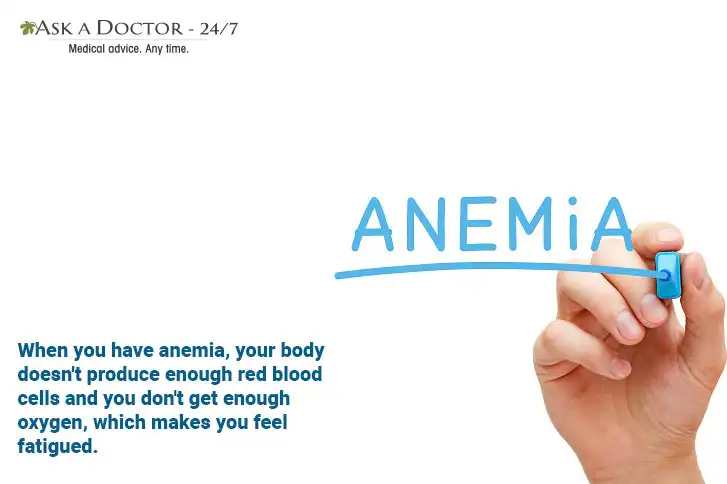Feeling Crazy Tired Even After A Good Night's Sleep? Get Checked For These Medical Conditions Immediately!
Getting your everyday beauty sleep is a necessity just like hunger and thirst; it is required to ensure one’s body is working at optimal levels. However, if you wake up feeling tired despite getting seven to eight hours of sleep every day, then that is usually a sign of health issues or medical conditions and you must not ignore it!
Here, you can look into certain disorders that could lead to severe fatigue:
1. Allergic Rhinitis

If you are constantly exposed to or breathing in pollen, dust or animal dander, this can result in allergic rhinitis. It mostly occurs during the hay season and is therefore commonly known as ’hay fever’. Some of the common signs and symptoms that you might experience apart from fatigue include excessive nasal secretion, nasal obstruction, sneezing fits, and itching. You must get a medical consultation done to get effective treatment!
Treatment for Allergic Rhinitis:
- Topical nasal antihistamines
- Topical nasal steroids (should only be prescribed by a doctor)
- Second generation oral antihistamines
- Immunotherapy allergy shots
2. Anemia

One of the most common blood conditions throughout the world. This condition effects more than three million people in the US. This also mostly affects women during their menstrual years or women who have been diagnosed with uterine polyps or uterine tumors. This condition usually occurs as a result of low levels of red blood cells and blood loss. If you are experiencing cold and dizziness along with fatigue, there is a chance that you are suffering from anemia.
Treatment for Anemia
- Iron Supplements: Doctors will usually prescribe iron supplements to increase levels in the body. Although, iron supplements can be bought over the counter, it is best to have it prescribed by a doctor.
- Iron-Rich Foods: To relieve symptoms of anemia, you can increase the intake of iron-rich foods such as red meat, spinach, broccoli, legumes, pumpkin seeds etc.
3. Depression/Anxiety

Two of the common roots of chronic fatigue are depression and anxiety. In some cases, depression or anxiety is hereditary and can also be related to the winter season, commonly called Seasonal Affective Disorder or SAD. Although fatigue is a common symptom, some of the other symptoms also include disinterest in daily activities, emotional overeating or persistent lack of appetite, excessive worrying, nervousness, agitation, oversleeping or insomnia, a sense of worthlessness or hopelessness etc.
Treatment for Anxiety or Depression
If you are experiencing persistent symptoms, it is best to go in for a consultation and get an evaluation done. Doctors will usually check you to see if the symptoms have a physical cause. In the absence of a physical cause, psychotherapy and medication will be provided to effectively treat the condition.
4. Fibromyalgia

With severe and long-term fatigue as one of the most common symptoms, fibromyalgia, is characterized by severe musculoskeletal pain. Fibromyalgia usually tends to run in families and is therefore hereditary. It can also occur as a result of an infection. Physical traumas such as an accident or emotional trauma such as long-term stress can also trigger the condition. Apart from fatigue, other symptoms include the inability to concentrate, disturbed sleep and most importantly widespread body pain.
Treatment for Fibromyalgia:
- Physical Therapy: Exercises, including water-based exercises, will be taught to you in order to improve your flexibility, strength and stamina.
- Occupational Therapy: A therapist would help make adjustments at your workplace or change the way tasks are performed in order to reduce stress on your body.
- Antidepressants, anti-seizure drugs and pain relievers may also get prescribed by the doctor after a diagnosis. These medications usually when prescribed together, help effectively relieve the symptoms of this condition, reducing the pain, relaxing the muscles and inducing sleep.
5. Rheumatoid Arthritis

This condition is characterized by the inflammation of joints and is an autoimmune disorder. The disorder usually occurs during middle age and is hereditary. If you are constantly exposed to silica or asbestos, that would increase your risk of developing the disorder. While you might experience severe fatigue, you might also experience stiffness and pain in the joints, fever and a loss of appetite.
You must consider medical intervention because if left untreated, it could lead to other complications such as rheumatoid nodules, osteoporosis, carpal tunnel syndrome, etc.
Treatment for Rheumatoid Arthritis
- Medications such as NSAIDs, steroids, biologic agents and disease modifying anti-rheumatic drugs (DMARDs) help to effectively treat the symptoms of this disorder.Physical therapy: A therapist will also help teach exercises to increase flexibility in your joints.
- Surgery: Doctors recommend surgery when or if medications fail to treat your condition. Some surgical procedures are synovectomy, tendon repair, joint fusion, and total joint replacement.
6. Hypothyroidism

Persistent fatigue can also be an indication that your thyroid is under-active. This condition affects the body’s ability to use energy, slowing down the process, thereby leading to weight gain, depression and cold intolerance, apart from the general sense of sluggishness that you might be experiencing.
Treatment for Hypothyroidism
- Medication: Based on your TSH levels, symptoms and history, doctors often prescribe synthetic Thyroxine in order to stabilize TSH levels.
- Iodine Supplements: Iodine is an important mineral for the healthy functioning of the thyroid gland. Low levels of iodine is one of the common causes of goiter. Salt intake can be increased in the diet or iodine supplements can be prescribed. However, hypothyroidism can cause sensitivity to iodine which could trigger or worsen the condition. Therefore, increasing iodine levels or consuming the supplements must be done with your doctor’s permission.
While fatigue after a long day of engaging in strenuous activities or repeated physical exertion on the body is normal, persistent and severe fatigue that doesn’t have an obvious underlying cause is not normal and should not be ignored. Apart from the above mentioned causes, some other triggers of chronic fatigue are food allergies, heart disease, sleep apnea, Type-2 diabetes and vitamin B12 deficiency. It is best that the cause is rooted out at the earliest by a medical professional.
For any further query related to fatigue, low esteem, tiredness or depression you can consult an online Internist/Hospitalist now!
Ask a Specialist
Recent Questions


